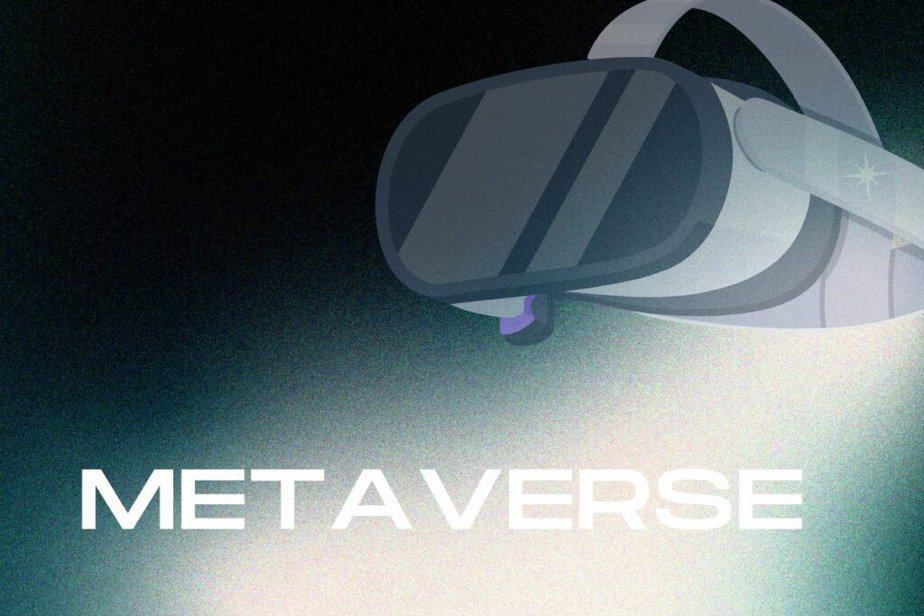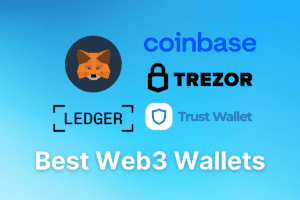Web3 Marketing: 6 Important Things You NEED to Know!
We’re reader-supported; we may earn a commission from links in this article.
In today’s fast-paced digital world, the landscape of marketing is constantly evolving. One of the latest and most exciting developments in the field is Web3 marketing.
This innovative approach leverages the power of Web3 technology to revolutionize traditional marketing strategies and reshape the way businesses connect with their audiences.
In this article, we will cover how what web3 marketing is, how to perform web3 marketing strategies, and current challenges in web3 marketing.
Read on for more information!
1. What is Web3 Marketing?

Web3 marketing refers to the utilization of Web3 technology, primarily blockchain and decentralized applications (dApps), to enhance marketing practices.
Web3 represents the next phase of decentralized internet and development, where individuals have greater control over their data, increased privacy, and participation in decentralized networks.
By embracing Web3, marketers can tap into a more transparent, secure, and user-centric ecosystem to engage with their target market.
Web3 Marketing represents the evolution of digital advertising in the ever-expanding world of the World Wide Web.
Marketers are embracing innovative strategies to captivate audiences as we move towards a future driven by technological advancements such as virtual reality and the Semantic Web.
2. Understanding Web3 Technology

To grasp the essence of Web3 marketing, it is essential to comprehend the underlying technology.
Web3 is an evolution of the traditional Web2 model, characterized by centralized platforms and intermediaries controlling and monetizing user data.
In contrast, Web3 leverages blockchain technology to create decentralized, peer-to-peer networks that empower individuals and foster trust.
At the heart of Web3 lies blockchain, a distributed ledger technology that enables transparent and tamper-resistant record-keeping.
It ensures data integrity and immutability, eliminating the need for intermediaries in transactions.
Smart contracts, self-executing agreements stored on the blockchain, further enhance the efficiency and security of interactions within Web3.
3. The Impact of Web3 on Marketing
Web3 technology is revolutionizing marketing practices, presenting businesses with new and exciting opportunities while also posing unique challenges.
This transformative technology has several key ways in which it is reshaping the marketing landscape.
Web3 technology profoundly impacts marketing practices, offering new opportunities and challenges for businesses.
Here are some key ways web3 transforms the marketing landscape:
a. Disintermediation and Trust
Web3 eliminates the need for intermediaries, allowing businesses to directly engage with their customers.
This disintermediation fosters trust and transparency by removing centralized authorities that control and manipulate data.
Marketers can build stronger relationships with their target audience, establishing credibility and authenticity.
With the advent of Web3, intermediaries are becoming obsolete as businesses can now directly engage with their customers. This disintermediation fosters trust and transparency by removing centralized authorities that control and manipulate data.
Marketers are now able to build stronger relationships with their target audience, establishing credibility and authenticity through direct interactions.
b. Tokenization and Incentivization

Tokens, digital assets built on blockchain, play a pivotal role in Web3 marketing.
They enable innovative monetization models such as tokenized loyalty programs, micropayments, and reward systems for internet users.
By incentivizing user participation and engagement, businesses can create a vibrant ecosystem where customers are rewarded for their contributions.
Tokens, digital assets built on blockchain, are at the heart of Web3 marketing. They enable innovative monetization models such as tokenized loyalty programs, micropayments, and reward systems for internet users.
By leveraging tokens, businesses can incentivize user participation and engagement, creating a vibrant ecosystem where customers are rewarded for their contributions. This enhances customer loyalty and drives active and meaningful interactions with brands.
c. Enhanced User Privacy and Data Control
Web3 prioritizes user privacy and data control, addressing growing concerns about data breaches and unauthorized use of personal information.
With Web3, individuals have ownership and control over their data, choosing when and how to share it.
Marketers must respect user privacy preferences and provide value in exchange for accessing user data.
Web3 puts a premium on user privacy and data control, addressing the mounting concerns regarding data breaches and unauthorized use of personal information. In this new paradigm, individuals have ownership and control over their data, choosing when and how to share it.
Marketers must respect user privacy preferences and provide genuine value in exchange for accessing user data.
This power shift ultimately leads to a more respectful and mutually beneficial relationship between businesses and consumers.
d. Decentralized Advertising Platforms

Web3 introduces decentralized advertising platforms that disrupt the traditional advertising model.
These platforms leverage blockchain and smart contracts to enable direct interactions between advertisers and publishers.
They facilitate more targeted and efficient advertising campaigns, reducing ad fraud and ensuring fair compensation for content creators.
Web3 introduces decentralized advertising platforms that disrupt the traditional advertising model. These platforms leverage the power of blockchain and smart contracts to enable direct interactions between advertisers and publishers.
By eliminating intermediaries, they facilitate more targeted and efficient advertising campaigns, reducing ad fraud and ensuring fair compensation for content creators.
This decentralization brings transparency to the advertising process and empowers both advertisers and publishers to have more control over their campaigns.
e. The Rise of Influencer Marketing in Web3

In the Web3 era, influencers gain even more prominence.
With their strong personal brands and loyal followers, influencers can leverage blockchain technology to monetize their content directly.
Web3 enables transparent and verifiable influencer collaborations through smart contracts, fostering trust and authenticity in influencer marketing.
In the era of Web3, influencers have gained even more prominence in the marketing landscape. With their strong personal brands and loyal followers, influencers can leverage blockchain technology to monetize their content directly.
Web3 enables transparent and verifiable influencer collaborations through the use of smart contracts, fostering trust and authenticity in influencer marketing.
This shift ensures that influencer partnerships are mutually beneficial and provide value to both the influencer and their audience.
4. Web3 Marketing Strategies
To thrive in the Web3 marketing landscape, businesses need to adapt their strategies.
Here are some effective approaches:
a. Embrace Decentralized Platforms
Explore decentralized advertising platforms that align with your target audience and industry.
These platforms provide opportunities for direct user engagement and enable more precise targeting.
These decentralized platforms enable direct engagement with users and provide more precise targeting options.
By harnessing the built-in operability of smart contracts, businesses can ensure transparency, reduce ad fraud, and maximize the return on their advertising investments.
b. Foster Community Engagement
Web3 is all about community participation and collaboration.
Build a strong community around your brand by actively engaging with your audience on the decentralized web of social platforms and forums.
Encourage user-generated content, reward contributions with tokens, and create opportunities for users to become brand advocates. This approach increases brand loyalty and enhances the authenticity and credibility of your marketing efforts.
Build a strong community around your brand by actively engaging with your audience on decentralized social platforms and forums.
Encourage user-generated content, reward contributions with tokens, and create opportunities for users to become brand advocates.
This approach increases brand loyalty and enhances the authenticity and credibility of your marketing efforts.
c. Develop Tokenized Loyalty Programs
Tokenized loyalty programs can be a game-changer in Web3 marketing. Create a token economy where customers earn tokens for their engagement, purchases, and referrals.
These tokens can then be redeemed for exclusive rewards, discounts, or even unique experiences. Tokenized loyalty programs incentivize customer loyalty and foster long-term relationships with your brand.
Create a token economy where customers can earn tokens for their engagement, purchases, and referrals. These tokens can then be redeemed for exclusive rewards, discounts, or unique experiences.
Tokenized loyalty programs incentivize customer loyalty and foster long-term relationships with your brand while also creating a sense of exclusivity and value for your customers.
d. Collaborate with Influencers
In the web3 era, influencers play a pivotal role in marketing strategies.
Identify influencers within your niche who align with your brand values and have a strong presence in the web3 community.
Collaborate with them to create authentic, engaging content that resonates with their followers.
Smart contracts can ensure transparency and fair compensation for both parties, establishing trust and credibility.
Identify influencers within your niche who align with your brand values and have a strong presence in the Web3 community.
Collaborate with them to create authentic, engaging content that resonates with their followers. Utilize smart contracts to ensure transparency and fair compensation for both parties, establishing trust and credibility with your audience.
e. Leverage Web3 Analytics and Measurement
As web3 evolves, so do the tools and analytics available to marketers.
You can explore web3 analytics platforms that provide insights into user behavior, engagement, and conversions within decentralized networks. These analytics can help you refine your marketing strategies, optimize campaigns, and make data-driven decisions to drive better results.
5. Challenges and Opportunities in Web3 Marketing

While Web3 marketing opens up new possibilities, it also presents challenges.
Here are a few you must consider:
a. Adoption and Education
Web3 technology is still early, and widespread adoption may take time.
Educating your audience about the benefits and potential of Web3 marketing can be challenging. Develop educational content, host webinars, and actively engage with your audience to bridge the knowledge gap and promote adopting Web3 practices.
b. Regulatory Environment
Web3 operates in a decentralized and global environment, making regulatory compliance complex.
Stay updated on the evolving regulatory landscape surrounding blockchain, cryptocurrencies’ data security, and data privacy. Ensure that your Web3 marketing strategies align with local regulations to avoid legal complications.
c. Technological Complexity
Web3 technology can be intricate, requiring significant technical knowledge and expertise to navigate.
Collaborate with experts in the field or invest in training your team to understand the nuances of blockchain, smart contracts, and decentralized platforms. Building a strong technical foundation will help you harness the full potential of Web3 marketing.
6. Future Trends in Web3 Marketing
The future of Web3 marketing is promising, with several trends expected to shape the industry:
a. NFTs in Marketing
Non-fungible tokens (NFTs) are gaining traction and offer exciting opportunities for marketers.
NFTs enable the creation of unique digital assets, such as collectibles hosting virtual events, artworks, or virtual experiences, that can be bought, sold, and traded.
Explore how NFTs can enhance your marketing campaigns, drive engagement, and create memorable experiences for your audience.
b. Metaverse Marketing

The metaverse, a virtual and augmented reality space where users can interact with digital environments and other users, is gaining momentum.
Consider how your brand can establish a presence in the metaverse and create immersive experiences that connect with your audience on a deeper level.
Collaborate with virtual world creators, host virtual events, or create branded virtual products to tap into this emerging trend.
c. Web3 Integration in E-commerce
Web3 technology can revolutionize e-commerce by enhancing trust, transparency, and security in online transactions.
Explore ways to integrate Web3 features into your e-commerce platform, such as accepting cryptocurrency payments, leveraging decentralized marketplaces, and providing verifiable data storage product authenticity through blockchain records.
d. Personalized Web3 Experiences
Web3 allows for personalized experiences tailored to individual users’ preferences and needs. Leverage data from decentralized networks to deliver your audience personalized content, recommendations, and offers.
Use smart contracts to create customized loyalty programs or personalized token-based rewards, further enhancing user engagement and satisfaction.
e. Web3 Gamification
Gamification has proven to be a powerful engagement tool, and Web3 can take it to the next level.
Many popular web3 games are in play today, including play-to-earn games and NFT farming games.
You can consider how you use these to market the products your company wants to show off to consumers by incentivizing them to play and win.
Conclusion
Web3 marketing represents a paradigm shift in digital marketing and advertising.
By embracing the power of blockchain, decentralized platforms, and user-centric practices, businesses can forge stronger connections with their target audience.
Engaging with Web3 technology opens up new opportunities for transparency, trust, and innovation in marketing strategies.
Stay ahead of the curve by adopting Web3 marketing techniques, fostering community engagement, and leveraging emerging trends to drive your brand’s success in this exciting new era.
FAQs
Is Web3 marketing only relevant for tech-savvy businesses?
Not necessarily. While web3 technology can be intricate, its principles and benefits are applicable to businesses across various industries. With the right understanding and guidance, any business can leverage web3 marketing to enhance customer engagement, build trust, and drive growth.
Will Web3 marketing replace traditional marketing methods?
Web3 marketing is an evolution of traditional marketing, incorporating new technologies and strategies. While it offers exciting opportunities, traditional marketing methods still hold value. The key is to adapt and integrate web3 practices into existing content marketing strategies to stay ahead of the curve.
How can small businesses with limited resources benefit from Web3 marketing?
Small businesses can start by understanding the fundamentals of Web3 technology and identifying platforms and communities relevant to their target audience.
Engaging with the community, creating valuable content, using social media sites, and exploring partnerships with influencers can help small businesses establish a presence in the Web3 landscape without significant financial investments.
How can Web3 marketing enhance customer trust?
Web3 marketing prioritizes user privacy, data control, and transparency.
Businesses can build trust with their audience by respecting user preferences, providing value in exchange for data, and leveraging blockchain’s immutability. Tokenized loyalty programs and transparent collaborations with influencers also contribute to establishing trust and authenticity in Web 3.0.
What skills are essential for marketers in the Web3 era?
Marketers in the Web3 era should have a solid understanding of blockchain technology, decentralized platforms, and smart contracts.
They should also possess skills in community building and engagement, data analysis, and the ability to adapt to emerging trends. Continuous learning and keeping up with the evolving Web3 landscape are vital for success.

Justin Chia
Justin is the author of Justjooz and is a data analyst and AI expert. He is also a Nanyang Technological University (NTU) alumni, majoring in Biological Sciences.
He regularly posts AI and analytics content on LinkedIn, and writes a weekly newsletter, The Juicer, on AI, analytics, tech, and personal development.
To unwind, Justin enjoys gaming and reading.


